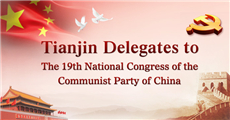
Liu Lizhu was not aware her shy, 15-year-old son had been bullied at school until he ended up in hospital with a ruptured spleen.
So begins another article in a series of news stories that have reported beatings, burnings and forced strippings in what CNN described as "an epidemic of bullying in China".
The term "epidemic" suggests that bullying is something new and these horrific examples are a frequent occurrence. "nobullying.com" an online forum for helping stop bullying, shows that it is a worldwide problem as ancient as society itself. Moreover, examples that result in assault are thankfully rare, more typically, the bullying behaviour goes unnoticed and unreported. What is new, is the open discussion of the issue in Chinese news and particularly on social media.
Discussion changes attitudes
In the west, bullying has been a recurring media topic for decades. Over time it's definition and scope has grown, it is no longer confined to playground and classroom behaviour, it is now recognised to exist on line, in the workplace and between corporations and countries. Recently, a popular soap opera in the UK ran a story about bullying behaviour within a marriage.
The gradual change in its recognition as a type of behaviour has been accompanied by a shift in attitudes and response. High profile stories, like those emerging in China, campaigns by concerned relatives and friends of victims, realistic story lines on children's TV programs and popular celebrities revealing their own bullying experiences, have helped educate and to change the image of those involved. The debating of the issues involved have created an increasing awareness of the harm it causes and slowly lead to changes in attitudes and the law. Today, there is a generation of young people who are more able to admit to being bullied and a society that has a better awareness and tools in place to deal with it.
Certainly attitudes in the west have changed. As a boy, repeated name calling and intimidation were considered part of growing up. They toughened you up for the hard life ahead. Wearing glasses, being fat, short or poor, or in any other way different, prompted taunts, exclusion from friendship groups and a reason for being picked out and picked upon. Books and movies were replete with the casual bullying by peers that made the behaviour a societal norm. A teacher or parent’s response was typically the children’s rhyme "Sticks and stones may break your bones, but names will never harm you."

 Daily life
Daily life




